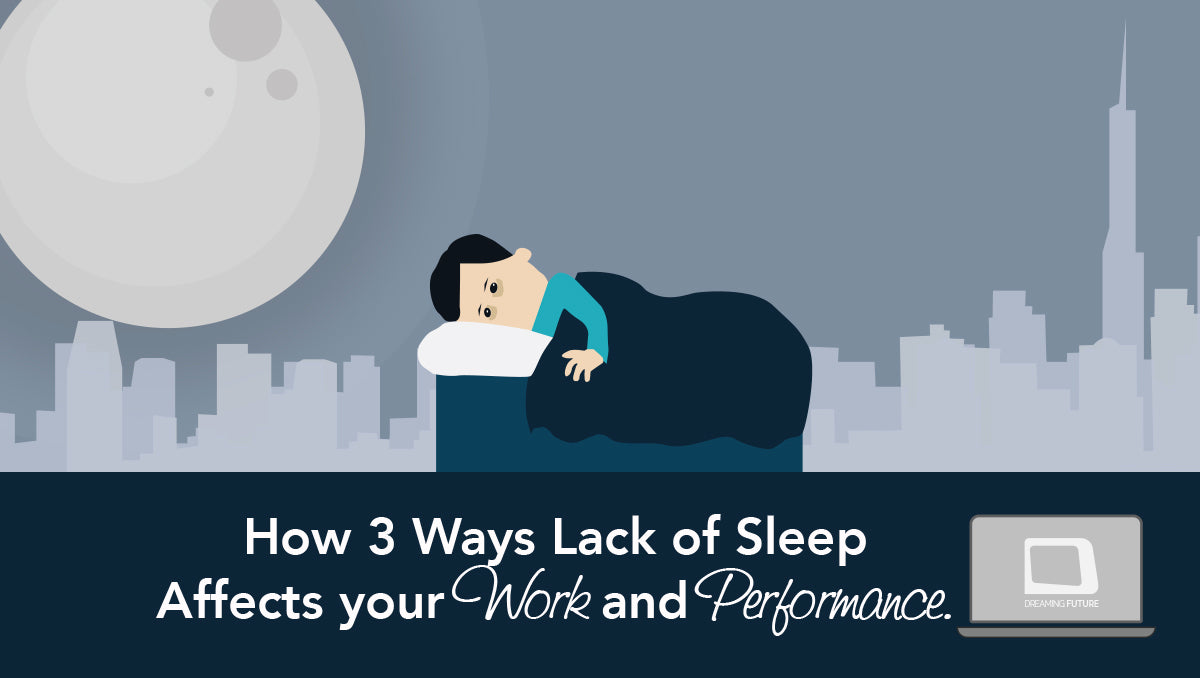How does sleep affect your work performance?
Oct 11, 21

How does sleep affect your work performance?
We spend most of our time at work. While we all are aware that well-rested individuals perform significantly better than those who do not, we often overlook the importance of sleep in today’s driven, globalized, competitive work culture. Several recent studies have examined the impact of sleep on work performance and the possible benefits of naps, raising interesting questions for both employees and employers. Based on research, questionnaires, and interviews, the studies indicated that sleep problems were likely to impede work performance, particularly for persons with depression and anxiety disorders.
If you march off into work without having an adequate amount of shut-eye the night prior, you’ll notice a marginal decrease in your work performance, and your stress levels, as a result, will tend to be higher. People with depressive disorders who sleep less than 6 hours per night and have insomnia and people without illnesses who have insomnia or sleep more than 10 hours per night suffer the most disadvantage in terms of rest impacting work. These people are more prone to perceive a drop in their work performance and take two-week or longer vacations from work.
At Morpheus Healthcare, we have been working to help our customers sleep better for the past 40 years. Our medical director, Dr. Ashok Rajput, has over 43 years of experience and expertise in treating sleep and respiratory disorders. Here’s what he has to say about sleep deprivation and work performance:
1. Sleep deprivation means poorer performance and productivity: Healthy individuals should obtain a minimum of seven hours of sleep each night, with a recommended range of seven to eight hours, according to the American Academy of Sleep Medicine. However, research has revealed that most workplace professionals slept an average of 6 hours and 30 minutes. While an additional 30 minutes of sleep may not seem like much, the consequences of severe sleep deprivation are significant. Several survey participants said they were fatigued at work. More than half said they had trouble staying focused in presentations, taking more time to accomplish tasks, and finding it difficult to come up with fresh ideas. Participants reported having less willingness to study and being less able to manage competing demands, in addition to a lack of focus and limited creative capacities.
2. It impacts your physical health: Tiredness can have serious physical impacts. A general feeling of drowsiness is a common indication of inadequate sleep, but several individuals also reported having other physical symptoms, including indigestion and palpitations.
This backs up several well-established research that reveals a link between sleep quality and physical health. A weakened immune system makes you more prone to common infections, which can keep you away from work and potentially harm your career. According to one study, people who got less than seven hours of sleep on average were roughly three times more likely to have a cold.
3. Chronic sleep deprivation damages social, emotional, and psychological well-being:
Sleep deprivation has a significant effect on your emotions and temperament. Anxiety, nightmares, hyperactivity, and cognitive impairment are just a few of the more extreme psychological symptoms of sleep deprivation, all of which would be disastrous in the workplace. However, the more minor signs of insufficient sleep might be difficult to manage on the job. In business situations, communication and collaboration are critical to professional growth. When people were fatigued in the survey, many of the respondents considered interpersonal parts of their job to be particularly difficult.
4. In jobs requiring high attention levels, sleep deprivation can have disastrous results: In workplace environments involving high levels of attention, not being well-rested can lead to cognitive dysfunction, memory loss, slower reaction times, and impaired perception judgment and decision-making. For instance, eighteen hours of continuous alertness, such as a full day of work, has been proven to cause behavioral alterations comparable to three glasses of red wine. For professionals whose occupations require close attention to detail, such as surgeons, pilots, and drivers, decreased cognitive performance might have serious consequences. Unfortunately, it has now become clear that a sleep-deprived staff can have severe consequences. Human error induced by tiredness resulted in the reactor meltdown at Three Mile Island, the Chernobyl power plant explosion, the Exxon Valdez oil leak, and the Challenger space shuttle catastrophe.
Conclusion
In conclusion, sleep deprivation is probably the worst thing you can do to not only your health but also your professional career. It’s high time that you start improving your sleep habits and start experiencing the changes in your life.
Having trouble sleeping? Try these five relaxation techniques for peaceful sleep, and contact us now to get in touch with our sleep and respiration experts.


